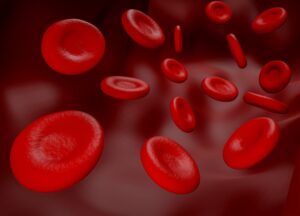
What is Haemochromatosis?
Haemochromatosis is a hereditary condition, in which excessive amounts of iron are absorbed from the diet. This iron is deposited in various organs, mainly in

Consider testing for haemochromatosis (HH) in:
Relatives who are at risk should be tested. This is absolutely essential in the case of brothers and sisters (siblings) as they stand at least a 1 in 4 chance of being affected. Early detection and treatment will prevent all the complications of the disease.
As haemochromatosis is an inherited disorder, family members of someone diagnosed with haemochromatosis are at increased risk of also having the condition. It is important to alert these family members and suggest they also get tested for haemochromatosis.
N.B. Screening leads to early diagnosis and treatment, preventing complications developing from this frequent and potentially fatal genetic disorder.

Haemochromatosis is a hereditary condition, in which excessive amounts of iron are absorbed from the diet. This iron is deposited in various organs, mainly in

Haemochromatosis International Haemochromatosis International is a global alliance of haemochromatosis associations, established to advance the health of people with haemochromatosis across Europe, North America,

Begin treatment as soon as possible; the earlier your treatment (the most effective treatment is by venesection) begins the better your chances of staying healthy.

Iron builds up slowly so symptoms may not appear until age 30 or 40. These symptoms include: The early biochemical signs of haemochromatosis tend to

Diagnosis A simple blood test to check your iron status can confirm or rule out iron overload. If both the serum ferritin (SF) and the

Consider testing for haemochromatosis (HH) in: Relatives who are at risk should be tested. This is absolutely essential in the case of brothers and sisters
If you or someone you know has Haemochromatosis, we are always ready to help. Use our helpline, send us an email or join us using the links below.
